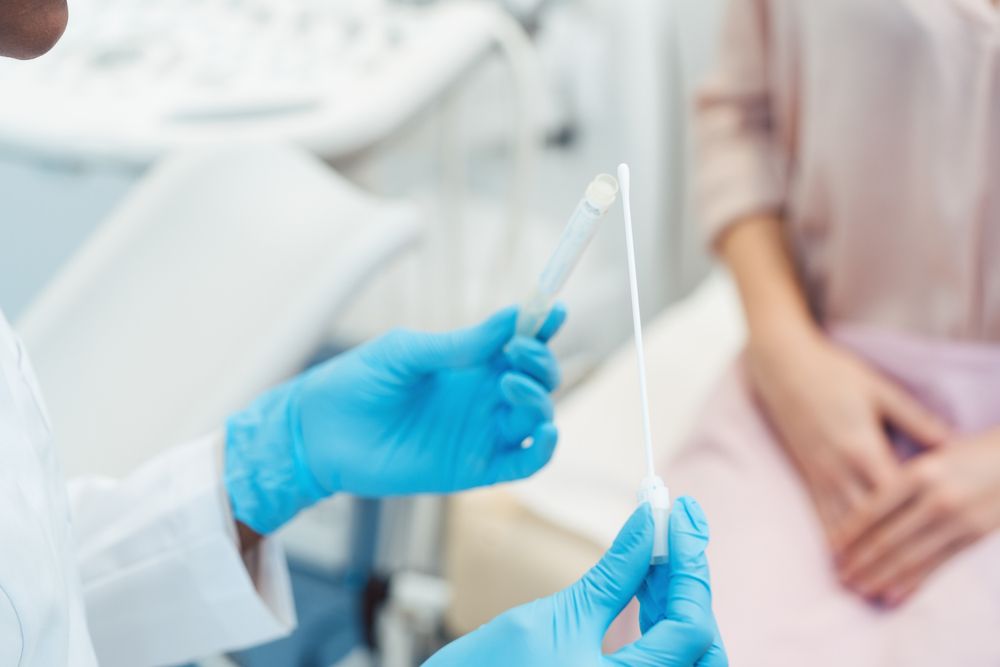What are sexually transmitted infections (STIs)?
STIs are infections that are transmitted through sexual contact. They are also known as sexually transmitted diseases (STDs). They may be caused by bacteria, viruses, or parasites. STIs can occur from vaginal, oral, or rectal sex.
There are literally dozens of possible STI’s and a handful that are most prominent because they are relatively common or result in medically serious conditions.
What are the most common STIs?
The most common STIs include, chlamydia, trichomoniasis, herpes (HSV), human papillomavirus (HPV), gonorrhea, syphilis, pelvic inflammatory disease (PID), viral hepatitis, and HIV. The CDC estimates that the first four account for 93% of all new STIs and that overall, one in five people in the US has an STI.
What are the symptoms of STIs?
This can be a problem because some STIs may have little or no initial symptoms and, thus, go untreated. They may then cause serious problems later including severe infections, infertility, and complications of pregnancy. This is why screening (testing) for some STIs is very important for certain patients at risk.
Other STIs may have symptoms that should spur a woman to seek evaluation. These symptoms include abnormal vaginal discharge or odor, genital sores, itching, burning, and painful intercourse. These are all reasons for an appointment with a gynecologist or other trusted care provider.
What are risk factors that indicate a need for STI screening?
Risk factors that should prompt a discussion of whether screening should be performed include more than one sex partner, any new sex partner, sex partner who has had an STI diagnosed, or any of the symptoms noted above.
Very importantly, about half of all new STIs occur in sexually active people aged 15-24 years. Therefore, the CDC, the American College of Gynecologists (ACOG), and other groups recommend that all sexually active women aged 15-24 receive annual screening for chlamydia and gonorrhea, two STIs that may not have initial symptoms but can have serious consequences if untreated. Testing is painless and involves only a swab from the vagina (more accurate and preferred) or a urine specimen.
A note about confidentiality for adolescent (“minor”) patients:
It is the law in North Carolina that any minor (person less than 18 years of age) may give consent to a physician for the diagnosis, treatment, or prevention of STIs (also for pregnancy, alcohol or drug problems, or emotional disturbance) without the requirement of parental permission. This gynecology practice conforms to that law and will provide such services non-judgmentally and with complete confidentiality. It is of utmost importance here that a young woman has no reason to hesitate to ask questions or seek help.
How can STIs be prevented?
Of course, abstinence is the only absolute prevention for STIs, but certain behaviors can significantly reduce the risk. These include the use of condoms with all vaginal, anal, or oral sex (except in mutually monogamous relationships) and sexual monogamy or a minimal number of partners.
A critical element of preventing STIs is to prevent their spread and prevent reinfection by treating the partners of those found to have infections. Usually, all sex partners within the previous 60 days should be contacted, tested, and treated or given precautions. See information on treatment and expedited partner therapy (EPT) below.
The special case of HPV vaccination
HPV infection, the cause of cervical cancer and genital warts, can be prevented with a safe and effective vaccine. The CDC recommends this vaccine for preteens at age 11 or 12 and for everyone through age 26. Older individuals who have not been vaccinated might also benefit and should discuss with their healthcare provider.
How are STIs treated?
The treatment is different for each for each type of infection. Those that are caused by bacteria, including chlamydia, gonorrhea, and syphilis, can be cured by antibiotics. The same is true for trichomoniasis, which is caused by a parasite.
All sex partners within the previous 60 days (or the most recent partner if it has been more than 60 days) should be contacted, tested, and treated. If they are unable to be tested, they may get treatment though expedited partner therapy (EPT).
EPT is a program in North Carolina and many other states that makes it legal for the doctor of a patient with chlamydia or gonorrhea to provide a prescription for her partner(s) to receive treatment. The prescription can be written anonymously. This is a very important innovation to help prevent the spread of these diseases throughout a community.
Viral STIs, including herpes, viral hepatitis, and HIV cannot be cured but their side effects, complications, and spread can be managed or prevented so it’s important to be aware of their presence. Each of these requires specific discussion and planning depending on the circumstances.
Healthcare providers in North Carolina are required to report diagnoses of STIs to their local health departments so the state can monitor for outbreaks.
A word about being diagnosed with an STI
Sexual intimacy between consenting adults is a normal part of life. It is wise and responsible to take steps as noted above to reduce the risk of STIs, but they are not 100% preventable. At least 20% of sexually active people have an STI. This is not to condone unsafe practices, but it is to say that STIs can occur in any sexually active person and the mere fact of having an STI is not a cause for shame. STI counselling, diagnosis, and treatment must occur in the same dignified, respectful, non-judgmental, and confidential manner as any other episode of medical care – and it always will be in this gynecology practice.
Summary
Sexually transmitted infections (STIs) are common, meaningful, and sensitive medical problems occurring in 20% of sexually active people. It is important to be mindful of the risks of certain behaviors to reduce the chance of acquiring an STI. The use of condoms and limiting the number of sex partners are the best methods of avoidance.
Knowing when to screen is critical because some STIs can be asymptomatic initially but cause serious medical problems if not detected and treated. Screening for chlamydia and gonorrhea should be obtained annually for all sexually active 15–24-year-olds because this age group accounts for half of all new cases. Patients with new or multiple sex partners should also receive screening.
HPV infection, the cause of cervical cancer and genital warts, can be prevented by a safe vaccination, usually recommended at age 11 or 12.
This office agreeably complies with North Carolina law that allows confidential counselling, testing, and treatment for STI’s in minors without parental consent. Similarly, it complies with NC law that enables anonymously prescribing treatment for the partners of those diagnosed with chlamydia or gonorrhea.
Finally, STI counselling, diagnosis, and treatment must occur in the same dignified, respectful, non-judgmental, and confidential manner as any other episode of medical care – and it always will be in this gynecology practice.
If you have questions or wish to be confidentially screened or treated for an STI, please call us at 919-916-3333.
Note: This article is intended for general information and to describe the approach at our practice. Each situation must be evaluated and considered for diagnosis and treatment individually.


